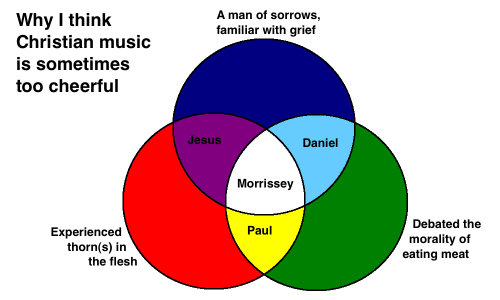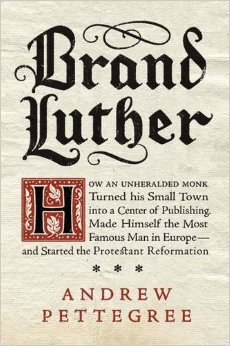
Click here to listen to the accompanying episode of The Mockingcast.
1) On the heels of “identity” being Dictionary.com’s word of 2015, Spiked editor Brendan O’Neill discusses a theme that we have spoken about quite a bit ourselves this year, namely, the increasingly fluid cultural understanding of identity politics. O’Neill takes on the phrase “I identify as…” as a telling move from what we used to say about ourselves: “I am…” And with this new movement of self-identification comes the emphasis on subjectivity, the need for one’s identity to be transient, temporal—rather than objective, fixed, given.
O’Neill describes that this rampant interest in self-identity is really an insecurity about it.
What the NYT and many others describe as new era of identity politics is in fact an era in which the historical, traditional underpinnings of identity have been ruptured, or even destroyed, unleashing an often desperate search for new identities, a rush for self-identification, for shallow identity construction. The subjectivity of human identity in the 21st century is striking, and alarming. Today, to feel something is to be something. In many Western nations now, including Britain, a man can become a woman – legally, and on his passport – simply by ‘identifying as’ a woman. People now ‘identify as disabled’, and it often isn’t entirely clear that they are disabled. One academic says that his ‘personal identification as a disabled person fluctuates according to the context’. In short, sometimes he is disabled, sometimes he isn’t. The objective category of disability – as a physical or mental impairment that limits a person’s ability to engage in public life – is done away with, and instead disability becomes something one feels, one ‘identifies with’, in certain situations if not in others.
The choice to self-identify subjectively certainly stems from a healthy impulse to include people rather than alienate them. It backfires, though, when no “group” is defined by traits that might actually group them. In other words, the hope not to alienate or be alienated tends to make aliens of everyone. There are no groups to be a part of anymore. Which is certainly what we see in gender-specific conversations, but also in religious spheres and in public political spheres (why else is Trump getting notice?). The fear of making objective “truth” statements winds up turning traditional markers of identity into formless, evasive nothings.
O’Neill talks about Christopher Lasch’s The Culture of Narcissism, and how these subjective self-identifiers only multiply our need for validation:
This desire to treat the world as a mirror, as a thing that must validate our self-esteem, is far more pronounced today than it was in the 1970s. The cult of self-identification, the insistence that grammar, education and institutions reorganise themselves around what individuals feel themselves to be, takes to the extreme the reduction of public life to the level of mere validator for insecure individuals. Lasch’s work also helps us to see how phoney is the freedom claimed by those who ‘identify as’. They frequently insist that they’re liberating themselves from outdated structures and social expectations. They pose as harbingers of a new and daring way of life, overturning everything about the old order, from gender to language, family life to social attitudes. This is false for two reasons. First, because what they present as their self-willed rebellion against and undermining of the old social, moral and sexual order is in fact a long drawn-out process of capitalist and institutional decay that has called into question almost everything Western societies once took for granted. And it was authored not by them but by various profound historical events and developments. They are really prettifying social and moral crises, standing on the rubble of the West’s decayed sense of itself and declaring: ‘We did this.’ And secondly, the freedom promised by the new narrow self-cultivation of identity is shallow indeed; in fact, it is not freedom at all.
2) All right. Time for some Stars Wars silliness?
And this, “The Ballad of Admiral Piett”.
After rising to command thanks to the incompetence of Admiral Ozzel, he manages to hold on to it through the end of the Empire, dying in a blaze of glory during the last space battle of the original films. To the end, he emblematizes the peculiar, banal evil of George Lucas’s Empire: English, white, slightly stuffy, and firmly task-oriented, a functionary in a bureaucratic galaxy governed by evil space wizards. As Star Wars returns to theaters this week with a new entry, my wildest hope is that it can recapture that sense of the larger world Piett belonged to, and the dark humor playing out in his rise to power.
3) A great segment from Brain Pickings about Marilynne Robinson’s newest book, The Givenness of Things. Like many of her essays in favor of the humanities, Robinson is talking about the limited scope of scientific knowledge, and anthropocentrism of human certainty. Here her beef is with popular neuroscience and its Enlightenment tendency to take away any talk of “the soul.”
Neuroscience has, as its primary resource, technology that captures images of processes within the living brain. Fear lights up a certain area, therefore fear is a function of that area, which developed for the purposes of maintaining homeostasis. It prepares the organism to fight or flee. Well and good. But fear is rarely without context. People can be terrified of spiders, dentists, the Last Judgment, germs, the need to speak in public, thirteen, extraterrestrials, mathematics, hoodies, the discovery of a fraud in their past. All of these fears are the creatures of circumstance, of the history and state of health of a specific brain. They identify threat, interpreting an environment in highly individual terms. They, not threat in the abstract, trigger alarm, and they are the products of parts of the brain that do not light up under technological scrutiny and would elude interpretation if they did.
…That said, it might be time to pause and reflect. Holding to the old faith that everything is in principle knowable or comprehensible by us is a little like assuming that every human structure or artifact must be based on yards, feet, and inches. The notion that the universe is constructed, or we are evolved, so that reality must finally answer in every case to the questions we bring to it, is entirely as anthropocentric as the notion that the universe was designed to make us possible.
 4) More fun and games from McSweeney’s. “My Millennial Neighbors Bright Future Is Posing a Health Risk.”
4) More fun and games from McSweeney’s. “My Millennial Neighbors Bright Future Is Posing a Health Risk.”
My millennial neighbor’s future is incredibly bright, and it is shining right into my apartment. Due to my recent divorce and subsequent loss of identity, I have developed a real, not made up sensitivity to the vivid, glowing promise of young talented people. Living next to her could cause lasting damage to my corneas and/or dignity. I can only assume it is a violation of some ordinance that one of your residents be put in close proximity to a known allergen. Therefore, for health reasons, I am requesting that she be moved.
…I was erroneously led to believe that a good education would lead to a good life. It seems that this girl was raised to believe that you can follow your own personal happiness. Watching her do so has forced me to double up my Prozac dose.
5) For the (Martin) Luther fans out there, prepping for the big 500th anniversary, this book sounds promising, despite the fact that “branding” always sounds quasi-industrious/manipulative. Brand Luther is a new book coming out about the inspired synergy between mass media print and Luther’s reformation—not to mention some really helpful graphic design by the Younger Cranach. All this made Luther the world’s first social media celebrity. As a review in the Weekly Standard notes:
All this made Luther the world’s first social media celebrity. As a review in the Weekly Standard notes:
Brand Luther is a neat blend of two stories, the theological and the commercial. At the same time it is a shrewd
character study of one who was revered by some and reviled by others. Contrasts and divisions abound, but what also emerges is an intriguing paradox, which Pettegree describes thus: “Printing was essential to the creation of Martin Luther, but Luther was also a determining, shaping force in the German printing industry.” Each depended on the other. And as this absorbing and illuminating book capably shows, after Luther, print and public communication—and indeed, religion—would never be the same again.
6) The Atlantic is running a “12 Days of Christmas Songs”, the best of which may be this Cold War nativity number.
7) Last but certainly not least, what’s Christmas without Little Richard? The Oxford American’s Georgia Music issue (ht Tom Martin), lights on the spiritual saga of the man, with nothing less than a Martin Luther story to boot. The whole thing is worth reading, here.
A different sort of troublemaker, Martin Luther, wrote in a letter to a friend in 1530, “Whenever the devil harasses you thus, seek the company of men, or drink more, or joke and talk nonsense, or do some other merry thing. Sometimes we must drink more, sport, recreate ourselves, aye, and even sin a little to spite the devil, so that we leave him no place for troubling our consciences with trifles.”
Richard was often torn between his life as a Christian and his life as a rock & roll sinner. “I would get up off an orgy and go pick up my Bible,” he once explained. “Sometimes I would have the Bible right by me.”
During one spell as an evangelist, he preached that “this kind of music is demonic.” Certainly, if you watch videos of Little Richard performing, he looks something like possessed. But the spirit he found, the way we move to Little Richard songs, must be a holy thing. Beyond boogie: the ecstatic mode, to spite the devil.

COMMENTS
One response to “Another Week Ends: Little Richard, Brand Luther, Star Wars, Marilynne Robinson’s Soul, and Identifying As…?”
Leave a Reply














Thank you for The Whole Shebang! Nice Weekends guys~ Nice website contributors, both guys and gals alike~ My Christmas just got a bit merry, especially with the 5 hour Darth Vader Yule log. An hour would have been funny, but 5 hours is just ridiculous and I appreciate ridiculous, dry (burnt to a crisp) humor.
Think I’ll have an egg nog from the bottom of the bowl. Thanks Martha. Cheers Luther. The Christ is born. All Glory, Laud, and Honor. YHWH has delivered as he promised. We are saved.